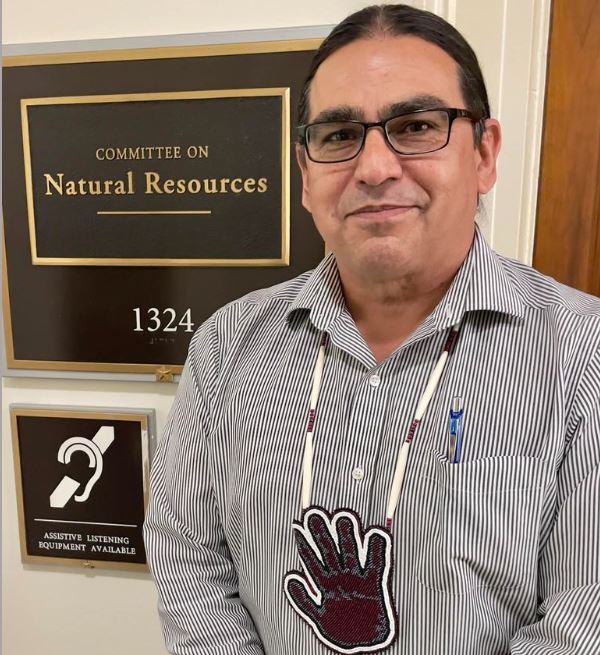Tribal Government & News
Langley testifies before House subcommittee seeking Restoration Act fix

By Dean Rhodes
Smoke Signals editor
WASHINGTON, D.C. – Tribal Council Secretary Michael Langley testified before the House of Representatives’ Subcommittee on Insular and Indian Affairs on Wednesday, June 7, regarding an error made in a 1994 piece of legislation that adversely affected the Grand Ronde Reservation Act.
The legislation, introduced by new Oregon Rep. Andrea Salinas in March, would allow the Confederated Tribes of Grand Ronde to address any future survey errors discovered on its original Reservation with the federal government.
The Bureau of Land Management discovered a survey error on the Grand Ronde Reservation that dates back to 1871. The error was discovered after passage of the Grand Ronde Reservation Act in 1988 that returned 9,811 acres to the Tribe.
Surveyor David Thompson had incorrectly surveyed the eastern boundary of the Reservation, missing 84 acres that should have been included. The land also was excluded from a 1904 sale of unallotted lands within the Reservation and Grand Ronde was not compensated for it.
Until the error was discovered, BLM treated the land as Oregon and California Railroad Grant Lands and permitted private companies to harvest timber on the acreage.
After being informed of the survey error, the Grand Ronde Tribe determined the parcel, called the Thompson Strip, was unmanageable because of narrow boundaries and divided ownership interests. The Tribe agreed to accept a 240-acre parcel of grant lands adjacent to the Grand Ronde Reservation in exchange and relinquish its claims to the Thompson Strip.
However, the Department of the Interior in 1994 developed broad language that relinquished any future claims of this type within the state of Oregon by the Grand Ronde Tribe, Langley said.
In agreeing to this land exchange in 1994, the intent was for Grand Ronde to relinquish its rights only to the Thompson Strip, Langley said. There was no intention by BLM or BIA officials involved in the land swap to extinguish the Tribe’s land claim rights for the entire state of Oregon.
House Resolution 1722 is sponsored by the entire Oregon delegation, Salinas said. It would replace the phrase “state of Oregon” with the phrase “84 acres known as the Thompson Strip” in the Grand Ronde Reservation Act. It also would prohibit any property obtained by the Grand Ronde Tribe as part of a land claim settlement from being used for gaming activities.
“The language in HR 1722 is quite simple,” Langley said. “… It is not Grand Ronde’s intention that this technical correction amendment would be used to facilitate Indian gaming or impact treaty rights of any other Indian Tribe.”
The U.S. Senate Committee on Indian Affairs advanced similar legislation in July 2020 and it was approved by the entire Senate. However, it was not passed by the House of Representatives and the bill died at the end of the 117th Congress.
A companion bill also was introduced in the U.S. Senate in March by Oregon Sen. Jeff Merkley.
Langley also said the Grand Ronde Tribe was supportive of House Resolution 2839, which seeks to amend the Siletz Reservation Act that would address hunting, fishing, trapping and animal gathering rights. However, he added, the Grand Ronde Tribe is disappointed its similar act was not being heard by the subcommittee because it addresses exactly the same issues.
